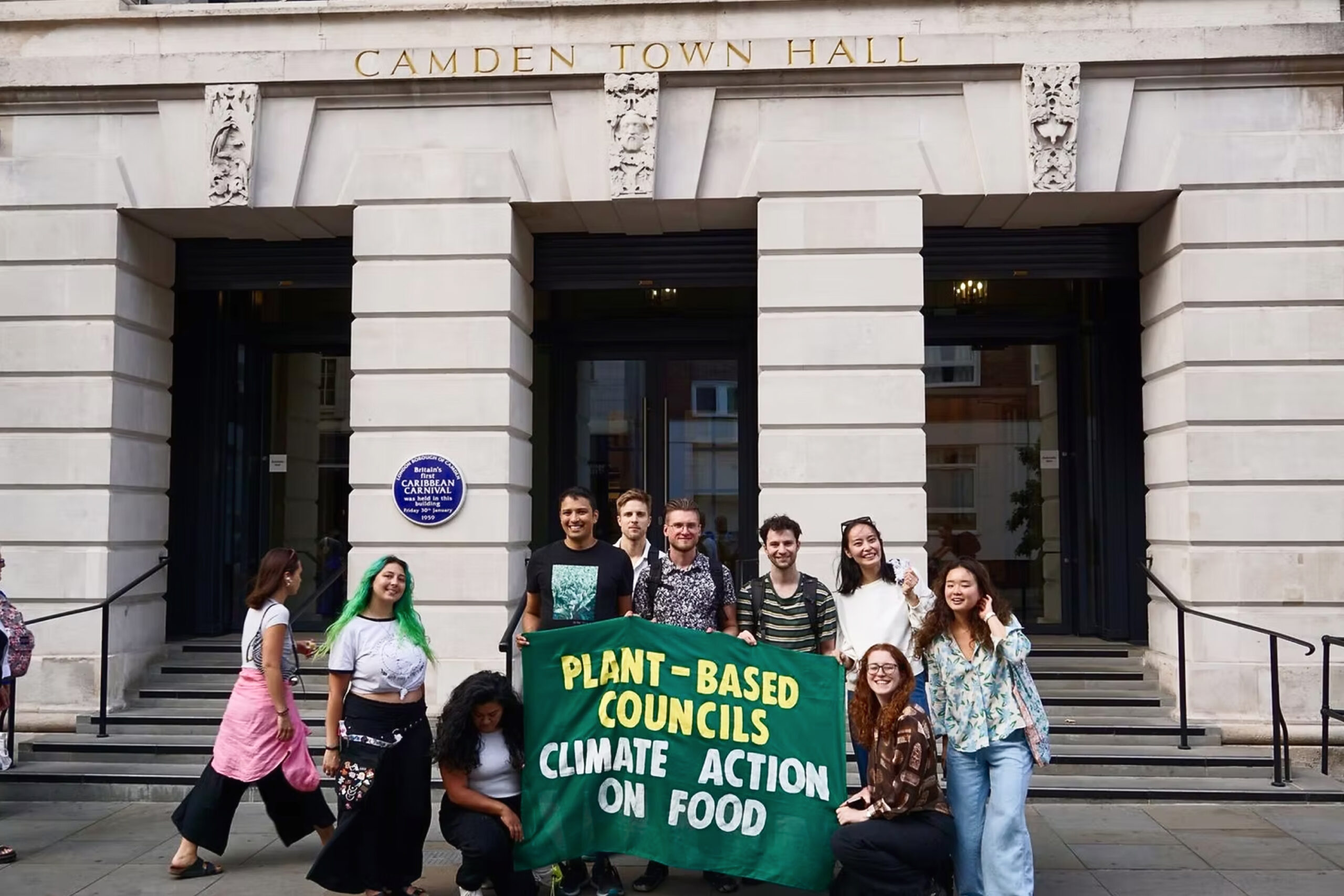Plant-based institutional food is gaining momentum across the United Kingdom, with 13 councils now implementing 100% plant-based catering policies for internal meetings and events.
The success of PlantBasedCouncils, a volunteer-led campaign organization, demonstrates that systematic advocacy can deliver real results. With over 40 active volunteer teams across the UK, the organization has achieved remarkable progress, securing 8 new council commitments in 2024 alone.
The Proven Approach
PlantBasedCouncils brings together, trains and supports teams of volunteers to campaign for change in their local councils. Their approach focuses on 100% plant-based catering for internal meetings and events, prioritizing seasonal British produce to support local farmers.
“We can win 100% by asking for 100%,” explains their strategy. “By pushing for 100% plant-based, we reframe the conversation from the popular ‘meat reduction’ narrative to one that includes a vision for a brighter future involving transformation of our food system.”
Why Councils?
The UK success demonstrates several key advantages of targeting local government:
- Accessible Democracy: Councils are the most accessible form of democracy for regular people, duty-bound to work with residents
- Climate Commitments: Councils have climate targets that plant-based catering helps achieve
- Cultural Influence: By changing what councillors eat, campaigns influence internal council culture, which spills out into the community
- Institutional Power: Councils are powerful institutions that directly influence people’s lives
Growing Momentum
The 13 successful council campaigns represent diverse communities across the UK, proving that plant-based policies can work in various political and cultural contexts. The model’s success has attracted international attention, with organizations in other countries now exploring similar approaches.
The volunteer-driven nature of the campaigns also demonstrates that substantial institutional change can be achieved through grassroots organizing, provided volunteers receive proper training and support.
Implications for Australia
With Australia having 537 councils nationwide and currently zero systematic plant-based campaigns, the UK model offers a proven framework for creating change. The success across diverse UK communities suggests similar approaches could work in Australian contexts.
As climate targets become more urgent and community expectations for environmental leadership continue to rise, the UK experience provides a roadmap for Australian advocates seeking practical ways to drive institutional climate action.
